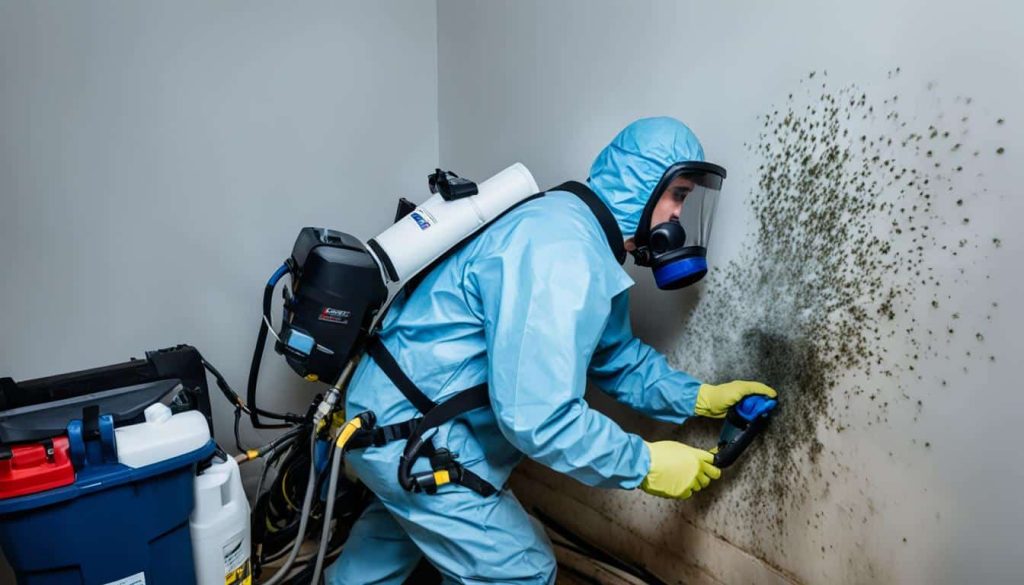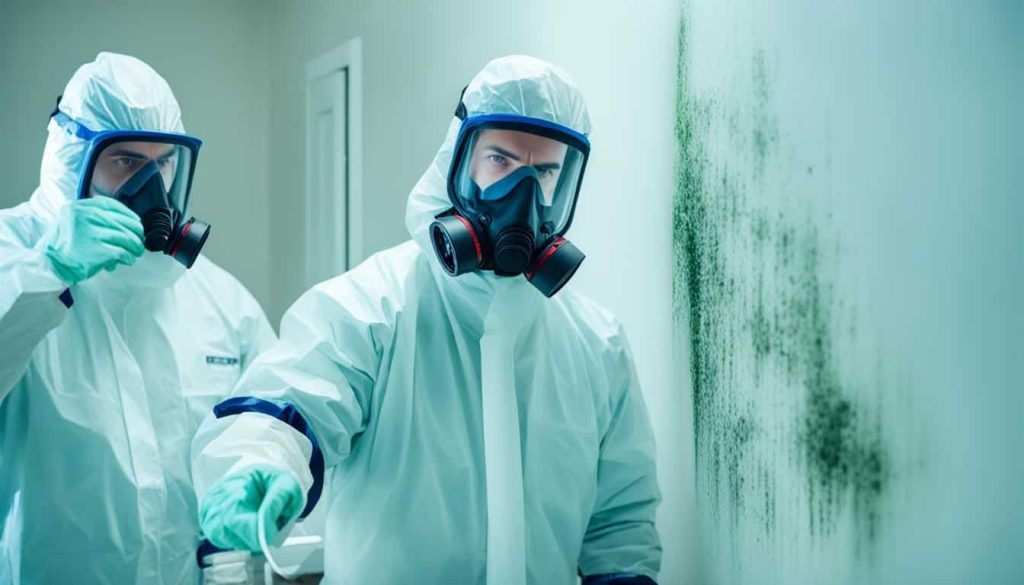Black Mold, scientifically known as Stachybotrys, is infamous for its toxicity and challenging removal process. As a leading expert in mold remediation, I want to shed light on what Black Mold is, its effects, and how to handle it effectively.
Array of Solutions, a trusted name in mold removal in Greenville South Carolina since 2007, stands ready to tackle your mold woes. With our expert mold inspection Greenville services and EPA-Registered credentials, we’re equipped to detect, remove, and prevent mold growth in your home or business.
Table of Contents
What is Black Mold/Stachybotrys?
Stachybotrys is a genus of mold classified under the kingdom of fungi. This genus is characterized by its asexual reproduction, making it a ‘hyphomycete’. Black Mold is often associated with Stachybotrys, particularly species like S. chartarum and S. chlorohalonata, which are commonly referred to as “Toxic Black Mold” in the United States.
Stachybotrys primarily thrives on materials rich in cellulose. This includes common building materials such as:
- Sheetrock paper
- Ceiling tiles
- Carpets
- Wood products

Moisture is the key factor in the survival and proliferation of Black Mold. It typically grows in environments where water damage has occurred, making damp or water-damaged areas particularly vulnerable.
It’s important to note that not all molds that appear black are Stachybotrys, and not all Stachybotrys is black. The mold’s appearance can vary significantly based on environmental conditions and the materials it grows on. The name “Stachybotrys” is derived from Greek, with “Stakhus” referring to grain or stalks, and “Botrus” meaning cluster or bunch.
What Can Exposure to Black Mold/Stachybotrys Do to You?
Exposure to Black Mold can lead to a range of health issues, although the severity and type of symptoms can vary widely among individuals. Factors such as the duration of exposure, the concentration of mold spores, and the individual’s overall health play significant roles in determining the impact. Common symptoms include:
- Respiratory Issues: Persistent coughing, sneezing, and throat irritation.
- Flu-like Symptoms: Nausea, fatigue, and muscle aches.
- Skin Problems: Rashes or dermatitis.
- Nasal and Sinus Irritation: Including sinusitis and rhinitis.
- More Severe Reactions: In some cases, people may experience more serious health issues, particularly if they have pre-existing respiratory conditions or weakened immune systems.
The health risks associated with Black Mold have garnered significant attention in recent decades. In the 1990s, a notable case in Cleveland, Ohio, involving infant deaths and other health issues was initially linked to Stachybotrys chartarum. However, extensive investigations by the Centers for Disease Control and Prevention (CDC) later concluded that there was no direct link between these deaths and mold exposure.
How to Deal with Black Mold
Dealing with Black Mold effectively requires a systematic approach to ensure complete remediation and prevent future growth:
- Identify the Source of Moisture: The first step in addressing a mold problem is to identify and eliminate the source of moisture. This could involve repairing leaks, improving ventilation, or using dehumidifiers.
- Contain the Area: If mold is present, it’s crucial to contain the affected area to prevent the spread of spores to other parts of the property.
- Remove Contaminated Materials: Moldy materials such as drywall, insulation, or carpets should be removed and properly discarded.
- Clean and Disinfect: Use appropriate cleaning agents and methods to remove mold from non-porous surfaces. Be sure to use personal protective equipment (PPE) to avoid exposure.
- Repair and Restore: Once the mold has been removed and the area is dry, repairs can be made to restore the property.
- Monitor and Maintain: Regularly inspect the area for signs of mold recurrence and maintain low humidity levels to prevent future problems.

Schedule an Air Quality Test
If you suspect that Black Mold may be affecting your home or business, it’s crucial to have an air quality test conducted. This test will help determine the presence and concentration of mold spores in your indoor environment. At Array of Solutions, we offer comprehensive air quality testing with prompt results to help you address any mold issues effectively.
Call me, Douglas Whitehead, at 864-710-6413 to schedule an air quality test or discuss your mold concerns. Ensuring a safe and healthy environment is our top priority.
